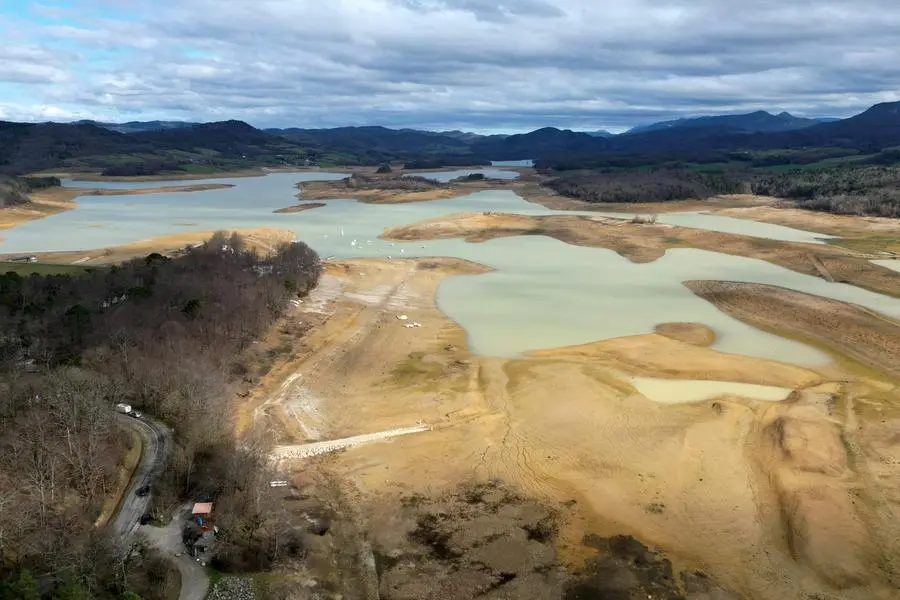PHOTO
The United Nations opened its first conference on water security in almost half a century on Wednesday, with a plea to governments to better manage one of humanity's shared resources.
A quarter of the world's population relies on unsafe drinking water while half lacks basic sanitation, the U.N. said. Meanwhile, nearly three quarters of recent disasters have been related to water.
"We are draining humanity's lifeblood through vampiric overconsumption and unsustainable use, and evaporating it through global heating," said U.N. Secretary General Antonio Guterres.
Ensuring access to clean drinking water and sanitation is part of the 17-point to-do list the U.N. has set for sustainable development, alongside ending hunger and poverty, achieving gender equality, and taking action on climate change.
While the three-day conference beginning Wednesday in New York isn't intended to produce the kind of binding accord that emerged from meetings on climate in Paris in 2015, or on nature protection in Montreal in 2022, Guterres said it must "result in a bold Water Action Agenda that gives our world's lifeblood the commitment it deserves".
That agenda aims to establish voluntary commitments from countries and sector representatives, and create "political momentum".
"Governments must develop and implement plans that ensure equitable water access for all people while conserving this precious resource," Guterres said.
"I also call on countries to work together across borders to jointly manage water."
Other voices on the issue include scientists, economists and policy experts within the Global Commission on the Economics of Water, which has issued recommendations including phasing out some $700 billion in agricultural and water subsidies it says are environmentally damaging.
That group, set up by the government of the Netherlands, a co-host of this week's conference, is also endorsing partnerships between development finance institutions and private investors to improve water systems.
(Reporting by Isla Binnie Editing by Mark Potter)





















